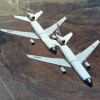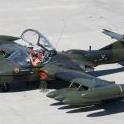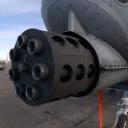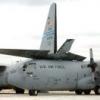This is exactly what I have seen in AFRC the last couple of years. Once guys hit 2nd year airline pay, the reserve job becomes a money loser - if you drop an airline trip for mil duty. If you do your mil job around your airline trips, sure you make that extra reserve money, but most guys would rather just have the time off.
Plus, the general ass-pain of the reserve job wears on folks. Little things, like - logging into a computer: Insert CAC, wait 10 to 15 secs for the computer to recognize it. Enter PIN, wait 69 seconds. Here comes the stupid pop up, oh, here is another, and, another. Finally, after 5 minutes, there is the desktop screen, click on Outlook, it opens, updates mailbox, 3 minutes later you can read email, blah, blah, and on and on. Oh yeah! Don’t forget the self aid buddy care, fire extinguisher training, trafficking in human persons, unexploded ordnance, etc, the same exact BS briefings you have sat through over and over and over and....












